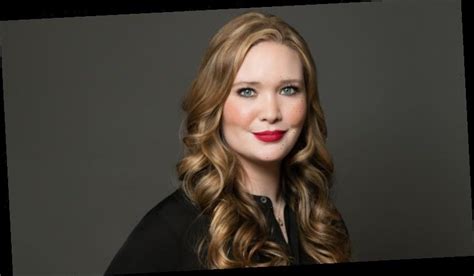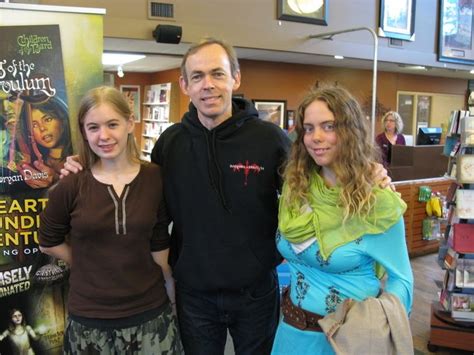A Quote by Sarah J. Maas
Honestly, I think there's a cycle to the popularity of fantasy and fairytales that usually coincides with times of unrest or hardship in our own world. By retelling these legends or immersing ourselves in fantasy realms, we can safely explore the very real, very day-to-day darkness of our own lives.
Related Quotes
I'm interested in the parallel narrative of our fantasy lives. How the moment of 'now' that is palpably real, is surrounded by our memories, our dreams and hopes, the stories and connections that our brains make as we navigate a universe of fantasy, or unreality, or surreality. I'm keen to explore this very human experience, how our minds create our own realities, a blend of fact and interpretation of fact.
To choose a hardship for ourselves is our only defense against that hardship. This is what is meant by accepting suffering. Those who, by their very nature, can suffer completely, utterly, have an advantage. That is how we can disarm the power of suffering, make it our own creation, our own choice; submit to it. A justification for suicide.
It is easy to imagine fantasy as physical and myth as real. We do it almost every moment. We do this as we dream, as we think, and as we cope with the world about us. But these worlds of fantasy that we form into the solid things around us are the source of our discontent. They inspire our search to find ourselves.
I think the Bhagavad Gita is about both the forces of light and the forces of darkness that exist within our own self, within our own soul; that our deepest nature is one of ambiguity. We have evolutionary forces there - forces of creativity, and love, and compassion, and understanding. But we also have darkness inside us - the diabolical forces of separation, fear and delusion. And in most of our lives, there is a battle going on within ourselves.
Fantasy stories open our eyes to an unseen world and train our minds to see beyond the visible. In the New Testament context, this is where our real battles are fought. Good fantasy will reveal the hidden powers of evil that threaten the hero's life and upset his journey. Good fantasy focuses on how a hero finds victory when he learns that he can't win by himself, so he submits to the higher power in faith and obedience.
I believe there is no part of our lives, our adult as well as child life, when we're not fantasizing, but we prefer to relegate fantasy to children, as though it were some tomfoolery only fit for the immature minds of the young. Children do live in fantasy and reality; they move back and forth very easily in a way we no longer remember how to do.
I believe these stories exist because we sometimes need to create unreal monsters and bogies to stand in for all the things we fear in our real lives: the parent who punches instead of kissing, the auto accident that takes a loved one, the cancer we one day discover living in our own bodies. If such terrible occurrences were acts of darkness, they might actually be easier to cope with. But instead of being dark, they have their own terrible brilliance. . . and none shine so bright as the acts of cruelty we sometimes perpetrate in our own families.
The media we surround ourselves with allows us to manufacture our own experience every day, which is a perception of the world that is our own invention entirely, whether it is on social media or what we choose to absorb. This was very different when I was a kid, like generations before us we were exposed to things that were not entirely on our terms. We had to wrestle with and find the relationship with the world around you. It was literal experience, unlike the form of protracted psychic masturbation that is the digital world we live in.


































